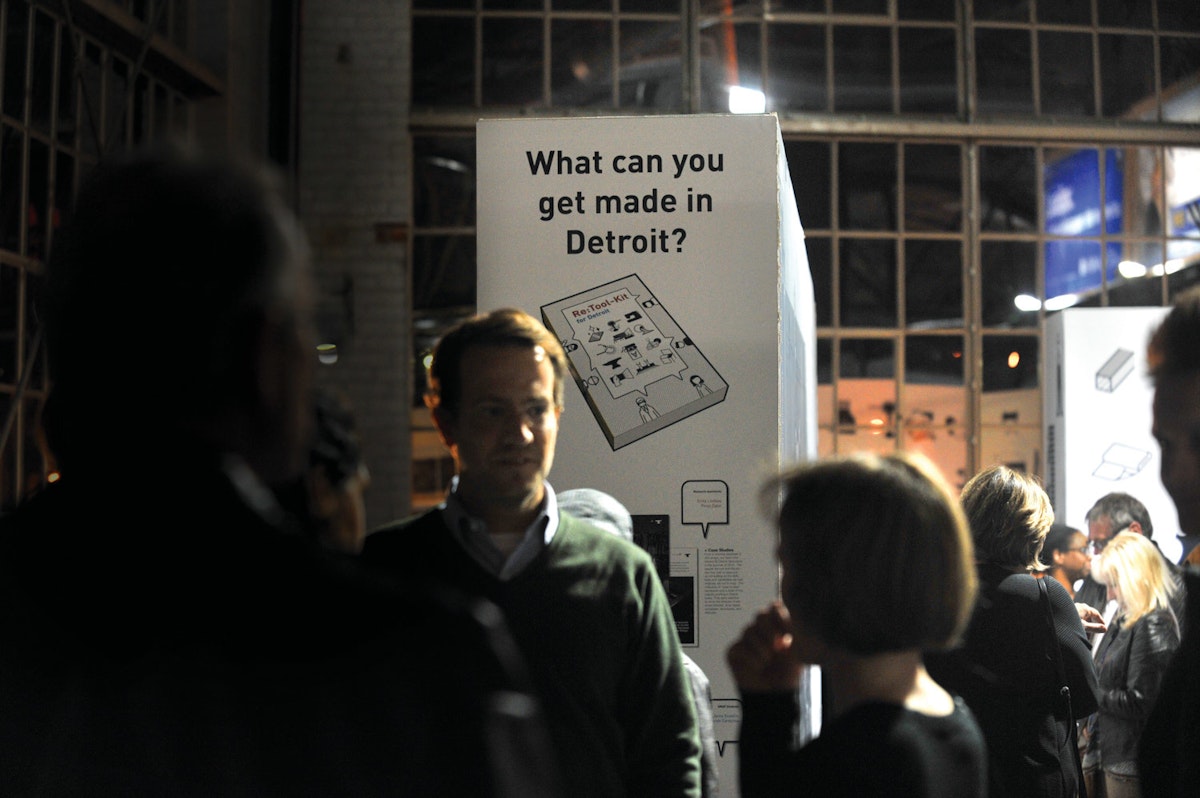Mapping Detroit’s Post-Industrial Present
Re: Tool-Kit for Detroit, a new publication and online resource created by Stamps faculty John Marshall and Seth Ellis and the Taubman College of Architecture and Urban Planning, sets out to answer the question: Can you really get ANYTHING made in Detroit?
The answer, it turns out, is yes, but not without some good people skills. “When we asked the people featured in this project how to go about getting something made in Detroit, the most common response was ‘ask someone,’ says Seth. “Word of mouth, knocking on doors, physical conversations and personal networks: these are the things that make up Detroit’s manufacturing culture, historically and currently.”
Through over 50 hours of personal interviews, this group of four researchers with backgrounds in design and data collection — (Heidi Beebe), mapping and web design (Seth Ellis), design/fabrication (John Marshall and Julia McMorrough) — have assembled both a much needed resource on two fronts.
As a reference, the handbook and online site bring visibility to the vibrant making scene in Detroit, suggesting various networks of people and fabrication shops in this city and beyond.

As a research document containing both data and personal stories, it is a fascinating portrait of a post-industrial city of makers, caught between an old paradigm of mass manufacturing and an emerging economy of handmade, designer enterprises.
The book profiles people like Veronika Scoot, a 22-year-old designer and entrepreneur who employs homeless women to sew and manufacture a convertible coat/sleeping bag for people on the streets. It also highlights Charles Baer of Eutectic Engineering, a casting shop that once had 120 people on staff to do runs of 100,000 parts for the auto industry but now performs much smaller runs, between 100 t0 500, with a staff of 12.
Converting Detroit’s know-how into a viable 21st industry has been the subject of many news articles and stories, so has the influx of young artists and designers who flood the city drawn by the low rents and DIY culture. The Re: tool Kit Detroit researchers suggest that they are the same story.
John Marshall explains: "Detroit — and by that we mean heavy manufacturing — is not ‘coming back’ anytime soon. The world has moved beyond that model of production. The potential for the present is for Detroiters to remake their city in the image of the values its citizens hold dear. Then Detroit will be known not just for industrial collapse but for being the world’s first 21st Century city."
Veronika Scoot agrees: "I could be back in New York, but I would be a sketch monkey for somebody else for a very long time before I could ever get an opportunity to do something like this again. Detroit is the only place where I could, as a 22 year-old, do a business on my own... I can’t think of doing it in any other city."
Learn more about the Re: Tool-Kit for Detroit and browse the directory online.